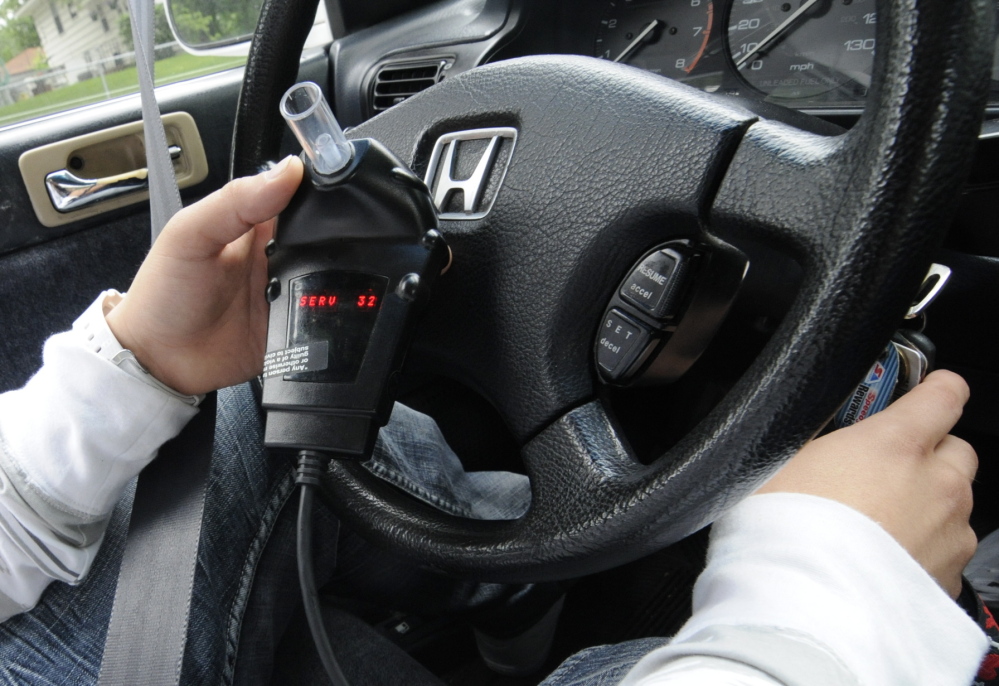CONCORD, N.H. — Residents convicted of drunken driving for the first time have the opportunity to get their licenses restored early under a new state law that took effect Friday.
The law applies to first-time offenders and requires court approval and installation of an ignition interlock system designed to prevent a vehicle from starting if the driver has been drinking.
The law requires offenders to serve 45 days of their suspension before being eligible for a limited privilege license. The average suspension in New Hampshire is six to nine months, though some can be as short as three months. The limited privilege license would allow people to drive to work, school, medical appointments and treatment programs.
Some defense lawyers say the law is long overdue in a rural state where public transportation is limited.
“New Hampshire is one of the few states that never had a restricted license law,” said attorney Ted Lothstein, who handles numerous DUI cases. “Regardless of how urgent a need is to drive – to get to medical appointments or how rurally they may live – there’s never been a hardship exception.”
He said the cost of installing an ignition interlock device – about $200 – and the monthly maintenance fee of about $80 are not cost-prohibitive “compared to the cost of not working.”
Judicial Branch spokeswoman Carole Alfano said she suspects the cost of installing and maintaining the devices will reduce the percentage of the roughly 6,000 first offenders each year who could take advantage of the new law. The branch’s fiscal impact statement expects 220 drivers a year to seek the limited license.
State police opposed the law when it was introduced in 2014. Earl Sweeney, then assistant commissioner of the Department of Safety, said the proposed 14-day suspension “trivialized” driving while intoxicated, and it was amended to 45 days – still shy of the 60 days Sweeney wanted.
Mothers Against Drunk Driving strongly supported the law because of the ignition interlock requirement; the group would have preferred a shorter license suspension or none at all.
“I think it’s better if drivers can get their licenses back with an interlock device,” said J.T. Griffin, MADD’s national chief of government affairs. “Suspension doesn’t really work. Studies show 50 to 75 percent of convicted drunk drivers will continue to drive on suspended licenses.”
Once courts approve drivers for a limited privilege license and set the parameters on where and when they can drive, drivers will then have to pay a $50 administrative fee to the Division of Motor Vehicles and pay to have the interlock devices installed.
Lothstein predicts several aspects of the new law will ultimately by decided by the courts. He said the law is not clear on whether drivers suspended before Jan. 1 are eligible to apply for the limited licenses. He said he’s going into court Monday with several cases to start that process.
Copy the Story LinkSend questions/comments to the editors.



Success. Please wait for the page to reload. If the page does not reload within 5 seconds, please refresh the page.
Enter your email and password to access comments.
Hi, to comment on stories you must . This profile is in addition to your subscription and website login.
Already have a commenting profile? .
Invalid username/password.
Please check your email to confirm and complete your registration.
Only subscribers are eligible to post comments. Please subscribe or login first for digital access. Here’s why.
Use the form below to reset your password. When you've submitted your account email, we will send an email with a reset code.